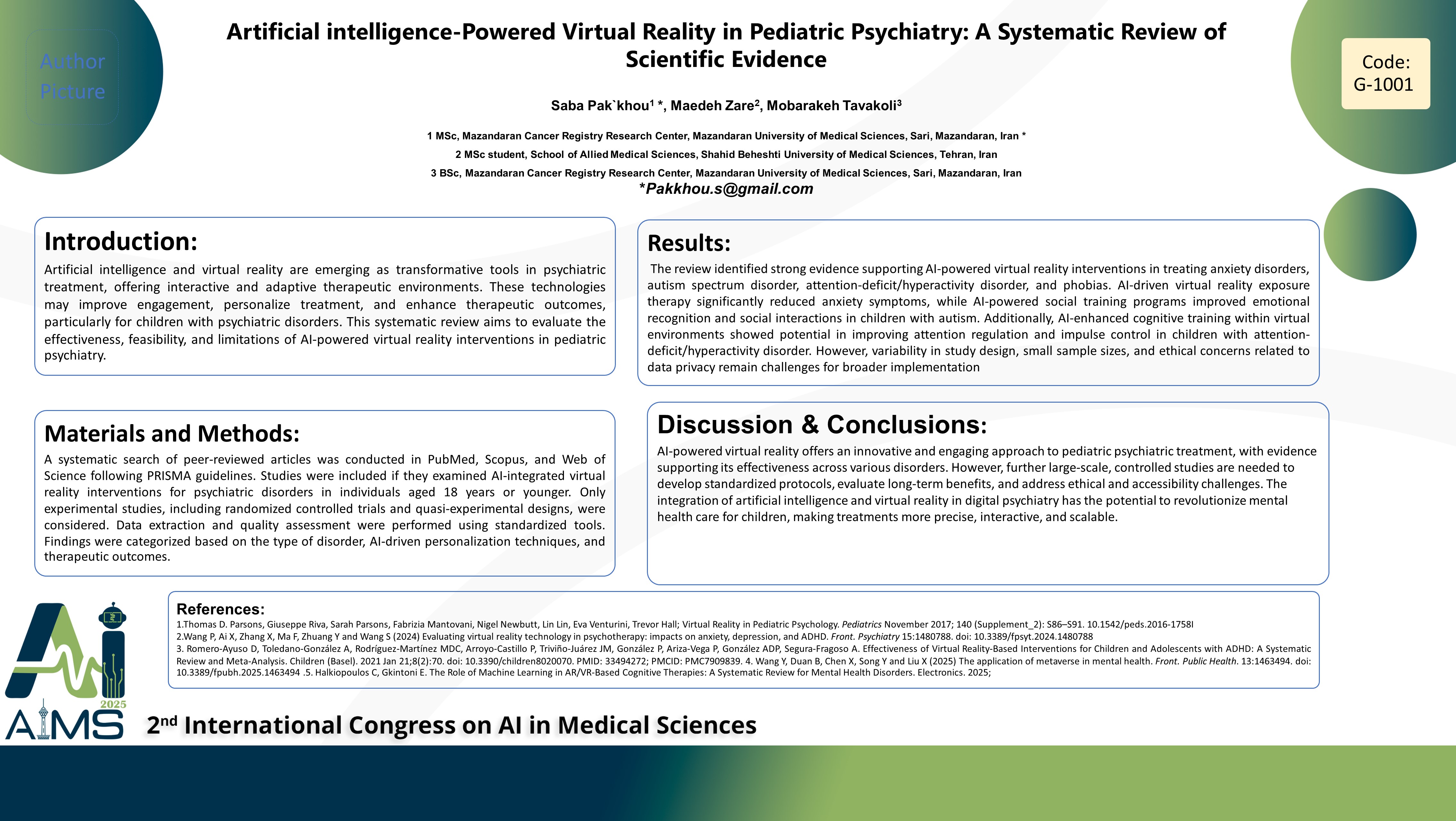واقعیت مجازی مبتنی بر هوش مصنوعی در روان پزشکی کودکان: بررسی سیستماتیک شواهد علمی
کد: G-1522
نویسندگان: Saba Pakkhou * ℗, مائده زارع, مبارکه توکلی
زمان بندی: زمان بندی نشده!
برچسب: رباتیک در جراحی و مراقبت سلامت
دانلود: دانلود پوستر
خلاصه مقاله:
خلاصه مقاله
Background and Aims: Artificial intelligence and virtual reality are emerging as transformative tools in psychiatric treatment, offering interactive and adaptive therapeutic environments. These technologies may improve engagement, personalize treatment, and enhance therapeutic outcomes, particularly for children with psychiatric disorders. This systematic review aims to evaluate the effectiveness, feasibility, and limitations of AI-powered virtual reality interventions in pediatric psychiatry Method: A systematic search of peer-reviewed articles was conducted in PubMed, Scopus, and Web of Science following PRISMA guidelines. Studies were included if they examined AI-integrated virtual reality interventions for psychiatric disorders in individuals aged 18 years or younger. Only experimental studies, including randomized controlled trials and quasi-experimental designs, were considered. Data extraction and quality assessment were performed using standardized tools. Findings were categorized based on the type of disorder, AI-driven personalization techniques, and therapeutic outcomes. Results: The review identified strong evidence supporting AI-powered virtual reality interventions in treating anxiety disorders, autism spectrum disorder, attention-deficit/hyperactivity disorder, and phobias. AI-driven virtual reality exposure therapy significantly reduced anxiety symptoms, while AI-powered social training programs improved emotional recognition and social interactions in children with autism. Additionally, AI-enhanced cognitive training within virtual environments showed potential in improving attention regulation and impulse control in children with attention-deficit/hyperactivity disorder. However, variability in study design, small sample sizes, and ethical concerns related to data privacy remain challenges for broader implementation. Conclusion: AI-powered virtual reality offers an innovative and engaging approach to pediatric psychiatric treatment, with evidence supporting its effectiveness across various disorders. However, further large-scale, controlled studies are needed to develop standardized protocols, evaluate long-term benefits, and address ethical and accessibility challenges. The integration of artificial intelligence and virtual reality in digital psychiatry has the potential to revolutionize mental health care for children, making treatments more precise, interactive, and scalable.
کلمات کلیدی
Artificial Intelligence, Virtual Reality, Pediatric Psychiatry
